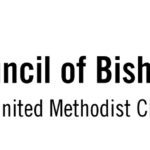How quickly do we try to put people into categories when we meet someone new? Do we have very many categories? Here are some of the first ones that come to my mind: conservative vs. liberal; traditional vs. progressive; Republican vs. Democrat; pro-life vs. pro-choice; pro-gun vs. anti-gun; and citizen vs. foreigner. My guess is that it wouldn’t take us much time to add more categories to this list. Do we treat people differently depending on what categories we think they fit?
Did Jesus use different categories? The first ones that come to my mind are neighbors vs. enemies. This seems to me to be two categories that our society easily embraces. How does our society define neighbors? As friends? People that we care about? Those that we understand and agree with? People that have the same goals as us? How about how our society define enemies? Those that we hate? People that we fear? Those that are trying to destroy us?
If someone falls into the category of “neighbor”, how does our society teach us to treat them? With love, care, and respect? Live and let live? Politely ignore? What does our society teach us about enemies? Destroy them before they can destroy us? Because they hate us, we should hate them? The world would be better off without them?
I love how radical Jesus’ teachings are! The concept of “neighbor” ranks high in his teachings. When asked which is the greatest commandment in the Law, Jesus said: “’Love the Lord your God with all your heart and with all your soul and with all your mind.’ This is the first and greatest commandment. And the second is like it: ‘Love your neighbor as yourself.’ All the Law and the Prophets hang on these two commandments.” (Matthew 22:37-40, NIV).
An expert in the Law asked Jesus “Who is my neighbor?” (Luke 10:29b, NIV). Jesus answered with a parable that is commonly called the Parable of the Good Samaritan. For a quick review, read Luke 10:30-35. It’s interesting that in this parable Jesus makes the Samaritan into the hero. The Jews mostly despised and ignored the Samaritans. Ironically, in Jesus’ parable the priest and Levite, both religious leaders, avoided the need that they saw in front of them. Jesus asked the expert in the Law “’Which of these three do you think was a neighbor to the man who fell into the hands of the robbers?’ The expert in the Law replied, ‘The one who had mercy on him.’ Jesus told him ‘go and do likewise.’” (Luke 10:36-37, NIV). Does Jesus possibly expect the same from us?
What does Jesus expect from us with those that we consider to be enemies? Jesus said: “You have heard that it was said, ‘Love your neighbor and hate your enemy.’ But I tell you, love your enemies and pray for those who persecute you…” (Matthew 5:43-44, NIV). Jesus continues by saying: “If you love those who love you, what reward will you get? Are not even the tax collectors doing that? And if you greet only your own people, what are you doing more than others? Do not even pagans do that?” (Matthew 5:46-47, NIV).
Is there any category where Jesus says that it is OK to talk bad about people, to be rude, to judge them, and to not love them? I’m seeing a lot of Christians, including United Methodists, doing this. Can we be faithful to Jesus’ teachings if this is the way that we are behaving?
I’m good with us having both neighbors and enemies (though my preference is to have all neighbors), as long as we respond to them in the way that Jesus teaches us. Jesus calls us to a high standard. Are we willing to stretch, and try to reach this standard? It’s hard, but this is what Jesus is calling us to do.
Your brother on the journey, Mark





